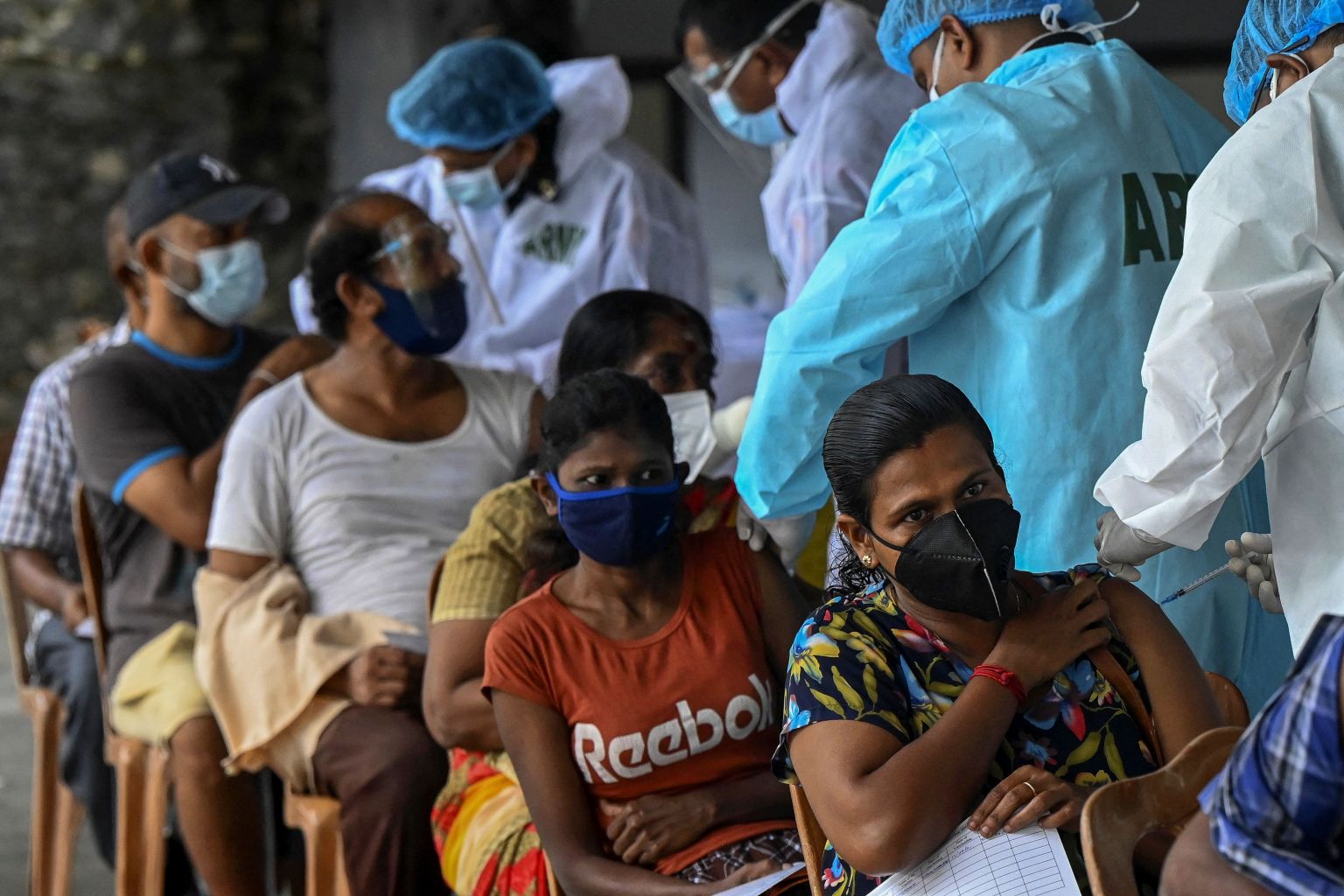WHO experts warn 'more dangerous' Covid-19 variants could take hold
Sign up now: Get ST's newsletters delivered to your inbox

Army health officials inoculate people against coronavirus at a vaccination site in Sri Lanka on July 15, 2021.
PHOTO: AFP
GENEVA (AFP) - The World Health Organisation's emergency committee warned on Thursday (July 15) that new and more dangerous Covid-19 variants were expected to spread around the world, making it harder to halt the pandemic.
The announcement was further bad news as several countries battle a new wave of infections fanned by new variants, namely Delta which was first identified in India.
"The pandemic is nowhere near finished," the committee warned in a statement on Thursday following a meeting a day earlier.
Committee chairman Didier Houssin acknowledged to reporters that "recent trends are worrying".
He said a year-and-a half after the WHO first declared a so-called Public Health Emergency of International Concern (PHEIC) - its highest alert level - "we are still running after this virus and the virus is still running after us".
For now, four concerning variants of Covid-19 are dominating the global pandemic picture: Alpha, Beta, Gamma and especially the rapidly spreading Delta variant.
But the committee warned that worse could lie ahead, pointing to "the strong likelihood for the emergence and global spread of new and possibly more dangerous variants of concern that may be even more challenging to control".
WHO declares variants as being "of concern" when they are seen as either more transmissible, more deadly or have the potential to get past some vaccine protections.
"The pandemic remains a challenge globally with countries navigating different health, economic and social demands," the committee said.
"Countries with advanced access to vaccines and well-resourced health systems are under pressure to fully reopen their societies," it said.
On the other hand, "countries with limited access to vaccines are experiencing new waves of infections, seeing erosion of public trust" as well as "growing economic hardship, and, in some instances, increasing social unrest", it added.
The experts said that as a result in many countries were many "increasingly divergent policy decisions that address narrow national needs which inhibit a harmonised approach to the global response".
They added that "the use of masks, physical distancing, hand hygiene, and improved ventilation of indoor spaces remains key to reducing transmission".
They underscored the need to vaccinate at least 10 per cent of the population of each country by September and for vaccine sharing between richer countries and poorer ones.
"Many countries have now vaccinated their priority populations, it is recommended that doses should be shared with countries that have limited access before expanding national vaccination programmes into lower risk groups."


